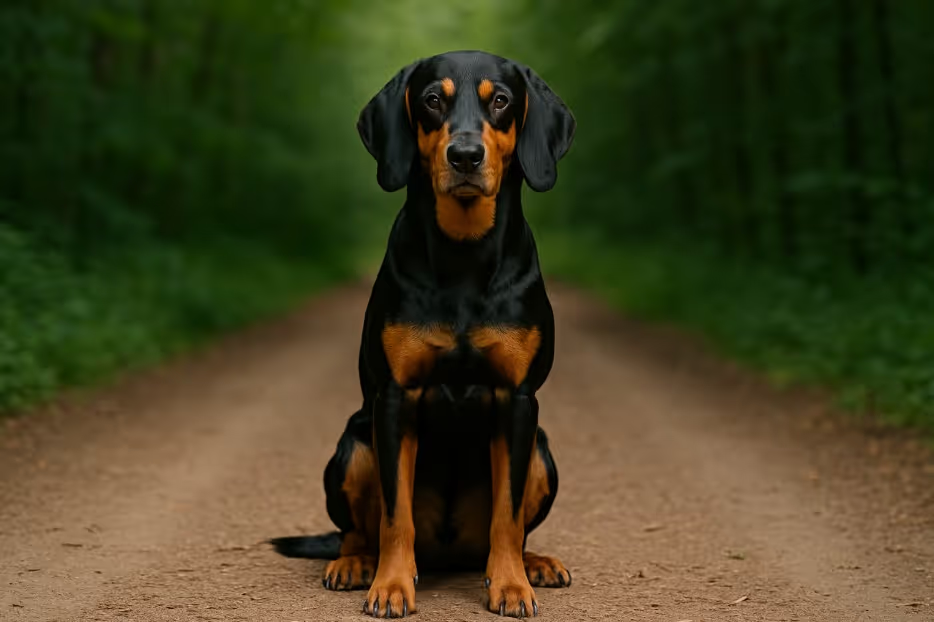The Transylvanian Hound is a rare, noble, and determined scent hound from Hungary, known for its exceptional hunting skills, athletic build, and loyal nature. Traditionally used for tracking and hunting large game such as boar, bear, and deer, this breed is intelligent, courageous, and affectionate with its family. It thrives in active households that can provide plenty of outdoor activity and mental challenges, making it an ideal companion for experienced dog owners who enjoy an adventurous lifestyle.

The Transylvanian Hound dates back to the Middle Ages in the Carpathian Mountains of Hungary and Romania. Developed by crossing local scent hounds with hunting dogs brought by Magyar tribes, the breed was prized by nobility for its ability to track and pursue big game in rugged terrain. Two varieties existed historically: a long-legged type for large game and a short-legged type for small game. While the short-legged variety has disappeared, the long-legged version survives today thanks to dedicated preservation efforts. Recognized by the Fédération Cynologique Internationale (FCI) in 1963, the Transylvanian Hound remains rare but is cherished by hunters and breed enthusiasts worldwide.
A medium-to-large, athletic scent hound with a sleek, muscular build.
Low-maintenance coat care.
An athletic working breed that requires substantial daily exercise.
Intelligent and eager to work, but with a strong prey drive.
A balanced diet supports their active lifestyle.
Generally healthy but may be prone to some breed-specific concerns.
The breed is rare outside Hungary and Romania.
Are Transylvanian Hounds good family dogs?
Yes, they are loyal and affectionate with family, but need plenty of activity.
Do they bark a lot?
They may bay or bark when hunting or alerting.
Do they get along with other pets?
They can, with socialization, but may chase smaller animals.
Are they easy to train?
Yes, but they require consistency and a firm handler.
Do they shed a lot?
Moderately, especially seasonally.
Are they hypoallergenic?
No.
How much exercise do they need?
At least 60–90 minutes daily of active outdoor work or play.